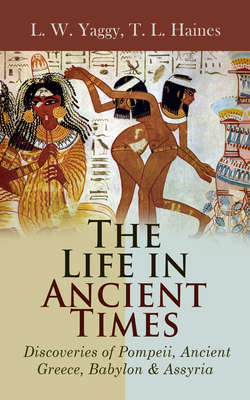Читать книгу The Life in Ancient Times: Discoveries of Pompeii, Ancient Greece, Babylon & Assyria - T. L. Haines - Страница 21
На сайте Литреса книга снята с продажи.
Crimes and Punishments; Contracts, Deeds, Etc.
ОглавлениеTable of Contents
Truth or justice was thought to be the main cardinal virtue among the Egyptians, inasmuch as it relates more particularly to others; prudence, temperance, and fortitude being relative qualities, and tending chiefly to the immediate benefit of the individual who possesses them. It was, therefore, with great earnestness that they inculcated the necessity of fully appreciating it; and falsehood was not only considered disgraceful, but when it entailed an injury on any other person was punishable by law.
A calumniator of the dead was condemned to a severe punishment; and a false accuser was doomed to the same sentence which would have been awarded to the accused, if the offense had been proved against him; but to maintain a falsehood by an oath was deemed the blackest crime, and one which, from its complicated nature, could be punished by nothing short of death. For they considered that it involved two distinct crimes—a contempt for the gods, and a violation of faith towards man; the former the direct promoter of every sin, the latter destructive of all those ties which are most essential for the welfare of society.
